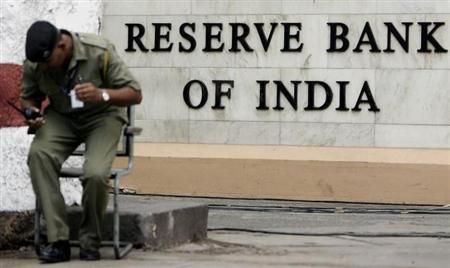 Monetary policy panel likely to have staggered induction of external appointees; Cabinet note likely soon
Monetary policy panel likely to have staggered induction of external appointees; Cabinet note likely soon
The proposed Monetary Policy Committee -- to be tasked with deciding on interest rates -- might see its external, government-appointed members being inducted in stages, the finance ministry and Reserve Bank of India have agreed.
By the revised draft of the Indian Financial Code, the proposed seven-member MPC, to be led by the Reserve Bank governor, will have four members appointed by the central government.
Business Standard has learnt from senior government sources that not all these four will be appointed together, to avoid a situation where all four end their tenures on the MPC at the same time.
The MPC states that the four external members will have a tenure of four years each.
An official explained: "The idea is that only two government appointees be inducted when the MPC comes into existence.
"Then, the following year, two more may be inducted or one each in consecutive years.
"This way, the selection committee will not have to appoint four new members in one go every four years, and there will be greater efficiency and continuity in the workings of the MPC."
A second official said the proposal of a staggered induction is not in the draft Code but has been discussed among officials in government and RBI.
And, will be included in the central bank’s bylaws. Finance Minister Arun Jaitley and RBI Governor Raghuram Rajan are said to have agreed to this.
The officials quoted above spoke on the basis of the IFC's proposals on the MPC composition.
They did not divulge whether the cabinet note on the panel, which minister of state for finance Jayant Sinha said last week had been prepared, would propose a composition different from that in the IFC.
The revised IFC draft, issued by the ministry in July, had suggested doing away with the RBI governor's veto power.
It wants the seven-member MPC to take decisions by a majority vote, with the governor having a second casting vote in case of a tie.
Under the present system, the governor is appointed by the government but controls monetary policy and has veto power over the existing advisory committee of RBI members and outside appointees on rates.
This was seen in the media as an attempt to dilute the powers of RBI.
At a later press briefing, outgoing finance secretary Rajiv Mehrishi had said the government and RBI had reached an understanding on composition of the MPC, different from what the IFC proposed.
The issue is expected to go soon to the cabinet thereafter be taken up by Parliament, in the form of amendments to the RBI Act.
The officials said these amendments, expected to be introduced in Parliament this financial year, will be on formation of the MPC and of the proposed Public Debt Management Agency.
They said the ministry wanted the proposed MPC to decide on interest rates only after the PDMA was set up and starts managing the government's debt.
The idea of setting up MPC and PDMA simultaneously is to avoid the conflict of interest that RBI might face with its formal mandate to control inflation and manage the government's borrowings at the same time.
PROGRESS ON POLICY RULES
- Not all four external, govt-appointed members might join seven-member MPC together
- This is to ensure continuity and better efficiency, as each is to have a four-year tenure
- Proposal agreed on by RBI, FinMin; cabinet note expected soon
- Proposed RBI Act amendments on MPC and debt mgmt agency











